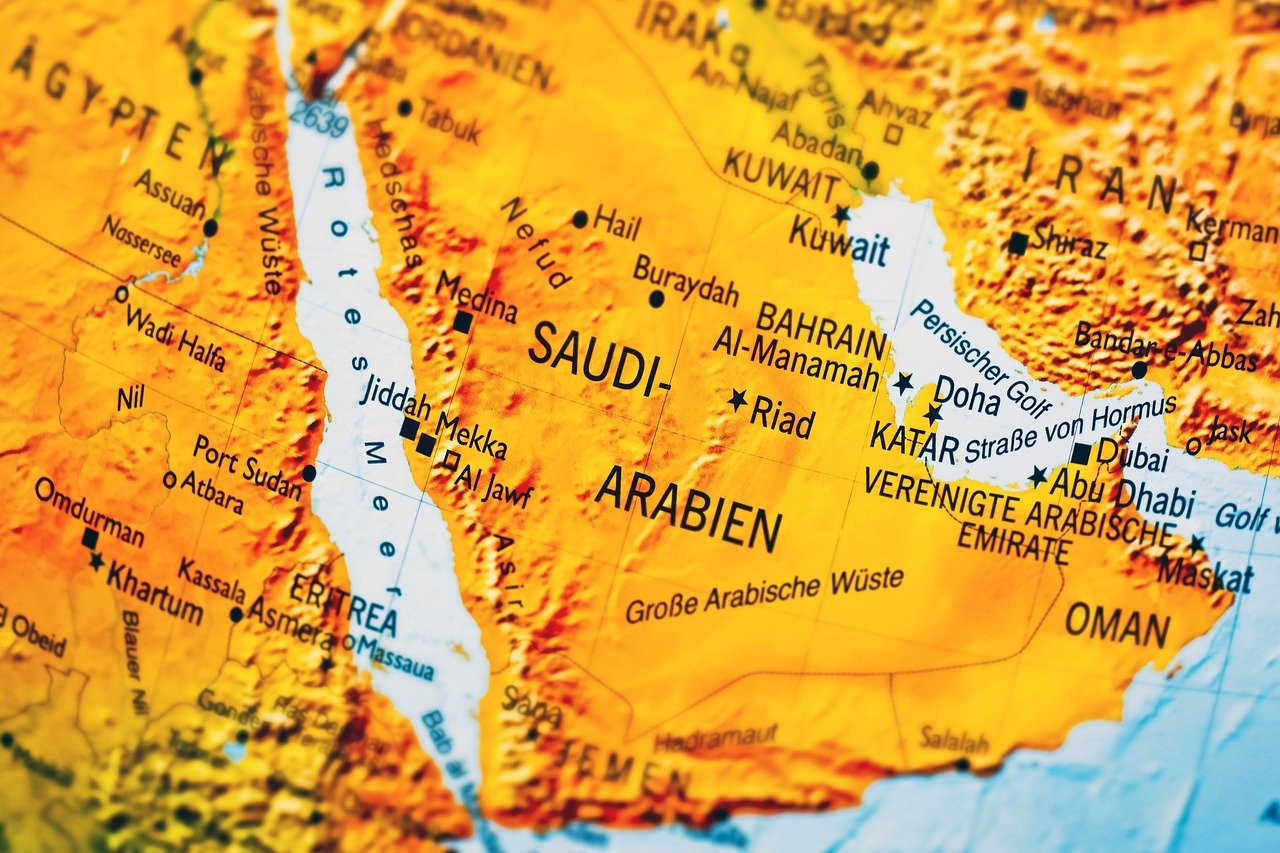Saudi Arabia has transformed significantly in recent years, evolving into a more inclusive environment for expatriates from various cultural and religious backgrounds. For non-Muslim expat families moving to Saudi Arabia, finding suitable schooling options is often a top priority. While Saudi Arabia’s education system primarily caters to local students with an emphasis on Arabic and Islamic studies, expats have access to numerous international schools, offering education aligned with global curricula. This article will guide you through the steps to identify and select the best schools for non-Muslim expat children in Saudi Arabia.
1. Understanding the Saudi Education System

Saudi Arabia’s education system is heavily influenced by Islamic traditions, but it also accommodates the needs of expat families through various international and private schools. The government provides free education for Saudi nationals, while expats typically rely on private or international institutions. The Ministry of Education regulates all schools, ensuring adherence to national standards, though international schools are allowed to follow different curricula, such as British, American, or IB programs.
Key points to understand:
- Public Schools: Public schools primarily cater to Saudi citizens and follow an Arabic curriculum with a strong focus on Islamic studies. These are not typically an option for non-Muslim expat families.
- Private and International Schools: These schools offer diverse curricula and are tailored for the expat community. They provide education in English and follow international standards.
- Compulsory Education: Schooling is mandatory for children aged 6 to 15, but most expats prefer to enroll their children in international schools from kindergarten onward.
Tips:
- Research the differences between curricula (e.g., British vs. American vs. IB) to determine what aligns best with your child’s educational background and future plans.
- Familiarize yourself with the academic calendar, as it may differ from your home country.
- Check if the school offers support for children transitioning from other education systems.
2. Types of Schools for Non-Muslim Expats: Private, International, and Community Schools
Non-Muslim expat families have several options for educating their children in Saudi Arabia. Understanding these options can help narrow down choices based on your child’s needs, language preferences, and cultural fit.
Private Schools
Private schools cater to both Saudi and expat families and often provide bilingual education. They typically follow the Saudi curriculum but include English language instruction. While they might not be ideal for non-Muslims due to the heavy emphasis on Islamic studies, they can be more affordable than international schools.
International Schools
These are the most popular choice for expats. They offer curricula such as:
- British Curriculum (IGCSE and A-Levels): Focused on a structured approach with globally recognized qualifications.
- American Curriculum: Includes SAT/ACT preparation and Advanced Placement (AP) programs.
- International Baccalaureate (IB): A globally accepted, inquiry-based learning system that emphasizes critical thinking.
- French, German, or Other National Curricula: These schools cater to specific expatriate communities and follow their home country’s education system.
Community Schools
Community-run schools often cater to specific nationalities, such as Indian, Filipino, or Pakistani expats. These schools are affordable and follow their home country’s curricula, making them ideal for families planning to return home eventually.
Tips:
- Choose a school that matches your child’s future academic plans (e.g., higher education abroad).
- Visit schools to understand the environment, diversity, and facilities.
- Check accreditations and affiliations with international education boards.
3. Key Factors to Consider When Choosing a School
Finding the right school is critical to your child’s academic success and emotional well-being. Consider the following factors:
Curriculum
- Does the school offer a curriculum aligned with your child’s current education?
- Is the curriculum internationally recognized for university admissions?
Location
- Proximity to your home or workplace is important due to heavy traffic in major cities like Riyadh, Jeddah, and Al Khobar.
Facilities and Extracurricular Activities
- Does the school have modern facilities, such as science labs, libraries, and sports areas?
- Are extracurricular activities like arts, music, or sports offered?
Teacher Qualifications and Class Size
- Check the teacher-to-student ratio to ensure personalized attention.
- Review the qualifications and experience of teaching staff.
Language of Instruction
- Is English the primary language, or are other language options available?
- Are ESL (English as a Second Language) support programs provided?
Cultural and Religious Sensitivity
- How does the school accommodate non-Muslim students during Islamic studies or religious holidays?
- Does the school foster a multicultural environment?
Tips:
- Talk to other expat families for recommendations and reviews.
- Attend open house events or schedule school tours.
- Verify if the school provides counseling and academic support services.
4. Navigating Admission Requirements and Application Processes
Admission processes for private and international schools in Saudi Arabia can be competitive, especially for popular institutions. Start early to secure a spot for your child.
Common Admission Requirements
- Application Form: Fill out detailed forms, often available online.
- Academic Records: Provide transcripts, report cards, or standardized test scores from previous schools.
- Birth Certificate and Passport Copies: Ensure documents are translated into Arabic if required.
- Immunization Records: Up-to-date vaccination records are mandatory.
- Entrance Exams or Interviews: Some schools require assessment tests in subjects like math and English.
Application Timeline
- International schools often have limited spots, so apply 6-12 months before the academic year starts.
- Be aware of waitlists and application deadlines, especially for popular schools.
Tips for a Successful Application
- Prepare multiple copies of required documents.
- Highlight your child’s achievements, extracurricular activities, and strengths during interviews.
- Follow up with the admissions office to track the status of your application.
5. Costs of Education: Tuition Fees and Additional Expenses
Education in Saudi Arabia for expats is an investment. International school fees vary significantly based on the school’s reputation, facilities, and curriculum.
Typical Expenses
- Tuition Fees: Annual fees can range from SAR 20,000 to SAR 100,000 or more.
- Enrollment and Registration Fees: One-time charges at the time of admission.
- Books and Supplies: These can add SAR 1,000-5,000 annually.
- Uniforms: Schools often require uniforms, costing SAR 500-2,000.
- Transportation: Bus services can cost SAR 5,000-10,000 per year.
- Extracurricular Activities: Clubs, field trips, and sports may involve additional fees.
Budgeting Tips
- Inquire about payment plans or sibling discounts.
- Check if your employer offers education allowances as part of your expat package.
- Plan for annual fee increases, which are common in private schools.
6. Resources and Tips for Finding the Right School in Saudi Arabia
Online Resources
- Expat Communities and Forums: Platforms like Expat.com or Internations.org often have school reviews and recommendations.
- School Websites: Explore official school websites for details on curricula, fees, and facilities.
- Social Media Groups: Join Facebook groups for expats in Saudi Arabia to seek advice.
Visit Schools
- Schedule visits to observe classrooms, talk to teachers, and assess facilities.
- Attend open houses to meet other parents and get a feel for the school environment.
Word of Mouth
- Seek recommendations from colleagues, friends, or expat parents who have been through the process.
- Ask for insights on the school’s academic reputation, teacher quality, and how well they accommodate expat students.
Final Tips:
- Start your search early, especially if you have multiple children or need specific curricula.
- Make a checklist of your priorities (e.g., curriculum, cost, location) to evaluate options.
- Stay updated on Saudi education regulations, which can sometimes impact expats.
By taking the time to research and visit schools, you can find the best option to ensure your child thrives academically and socially in Saudi Arabia.



